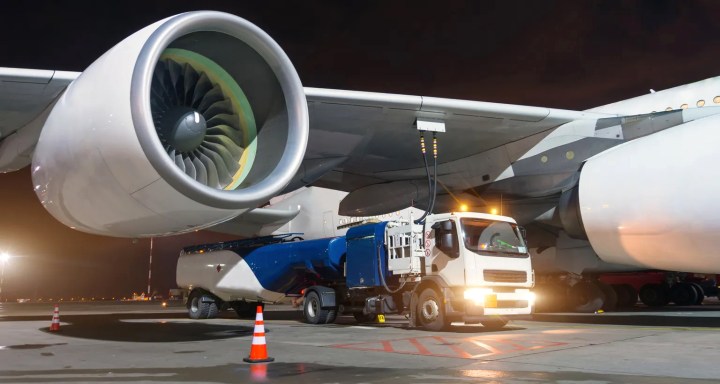
SUGAR TAX OP-ED
We need to look at the sugar tax and sustainable aviation fuels on their own merits

The sugar tax was introduced to reduce obesity in South Africa. Instead, it is destroying the very livelihoods people need to access the nutritious food they require to promote health and wellbeing.
In a recent op-ed, Nzama Mbalati of the Healthy Living Alliance argued that South Africa was falling behind in the shift towards sustainable aviation fuels (SAF) and questioned the reasons for this lag. In the same piece, Mbalati raised the issue of the Health Promotion Levy (HPL, or sugar tax), once again unjustifiably attacking the sugar industry with no regard for the reality on the ground.
He fails to draw the direct link between the two: to create a viable SAF industry, one needs a viable and sustainable sugarcane industry, which is currently under severe threat as a result of the HPL.
Those who are interested in the development of a biofuels and SAF industry in South Africa will remember that SA Canegrowers announced the findings of an initial feasibility study conducted in partnership with the Roundtable on Sustainable Biofuels.
This study demonstrated that by diverting half of the sugarcane currently produced in South Africa towards the development of SAF, South Africa could produce about 700 million litres of ethanol, which could be converted into 433 million litres of SAF for the aviation industry.
SA Canegrowers was and remains very optimistic about the prospects for growers in this potentially lucrative industry of the future.
Owing to greater recognition of the benefits of diversifying the sugarcane value chain for growers, this area of enquiry was adopted under the Sugarcane Value Chain Masterplan. Although the first phase of the masterplan has concluded, work on this project has not stopped. Moreover, SA Canegrowers is involved in several engagements in this regard, while some of our members have grouped together to independently pursue projects in this field.
All this work is happening even as new opportunities arise for the development of SAF in Africa.
A recent report has indicated that the EU is looking for opportunities in Africa to fund SAF projects under the Global Gateway infrastructure fund. As much as €150-billion from the fund will be dedicated to Africa.
While the allocation of €4-million from this fund for SAF feasibility studies may seem a paltry sum compared to the total, even a portion of this would go a long way towards assisting our existing efforts.
BRICS
BRICS is indeed also relevant to this discussion. As Mbalati points out, our Indian and Brazilian counterparts are far ahead of South Africa in SAF production.
The BRICS partnership presents a strong basis from which to develop partnerships with these countries to learn from their experiences and negotiate skills and technology transfers where necessary.
South Africa should also be looking at our BRICS partners for opportunities to study and replicate (with appropriate modifications) the legislative frameworks they have in place to regulate the operation of the industry. Similarly, these already friendly nations present an avenue to identify potential funders and investment partners.
The industry is aware of, and working on, these critical interventions, including engaging with government to ensure a regulatory framework is put in place to support the development of a local SAF industry.
But if they have any chance of success, there must be an industry capable of grabbing the opportunity. Which brings us to the Health Promotion Levy.
Sugar tax isn’t working

There is no evidence of the effectiveness of the sugar tax in South Africa. (Photo: beveragedaily.com / Wikipedia)
The Health Promotion Levy was implemented in 2018 to reduce obesity in South Africa. Independent research commissioned by Nedlac, not the sugar industry, has demonstrated the devastating socioeconomic impact of the sugar tax since its introduction, notably costing the country more than 16,000 jobs in the most vulnerable rural communities.
Moreover, the sugar tax does not operate in a vacuum.
This cumbersome tax has been imposed on an industry devastated first by drought, then floods, Covid, load shedding, social unrest and a crisis in the milling sector.
It is easy to ignore these challenges when one considers the sugar industry, as Mbalati does, as a monolithic bogeyman focused only on profits.
In fact, the sugar industry consists of an overwhelming majority of small-scale farmers.
More than 21,000 of SA Canegrowers’ 22,000 members are black, women, young and emerging small-scale farmers trying to eke out a living in a very difficult natural, social and regulatory environment.
This is the human face of the sugar tax, and it is relevant to any discussion of the future of the tax.
The proponents of the sugar tax have a bigger problem than the obviously destructive impact of the tax. Mbalati seems to have adopted the approach of throwing statistics together to prop up a weak argument, yet he fails to address one fundamental question: given that the sugar tax has been in effect for five years, is there any evidence that it has, in fact, reduced obesity in South Africa?
Sugar tax proponents frequently respond by noting that the sugar tax has been shown to reduce the consumption of sugary drinks, but that only begs the question. If the consumption of sugary drinks has gone down but obesity has not, then perhaps we are looking at the wrong culprit or, at best, a small contributor to the issue.
We must go back to first principles. Laws and regulations must be well crafted to address the specific problem identified.
The problem here is obesity, but the implemented “solution” isn’t working. Instead, it is destroying the very livelihoods people need to access the nutritious food they require to promote health and wellbeing.
We need a better approach to promoting health in South Africa.
This needs to begin with a holistic dietary intake study to identify the actual causes of obesity in people’s diet and lifestyle rather than scapegoating isolated products.
We also need to devise evidence-based solutions – there is no evidence of the effectiveness of the sugar tax in South Africa.
By taking a step back and taking the time to do the hard work required to craft effective solutions, we can save vital rural livelihoods, buy time for the local sugar industry to diversify into the products of the future, and – most importantly – we can develop health interventions that will work to improve health outcomes, reduce health-related costs and ensure that more South Africans live healthy, fulfilled and productive lives. DM
Thomas Funke is the CEO of South African Canegrowers.





















 Become an Insider
Become an Insider
Comments - Please login in order to comment.